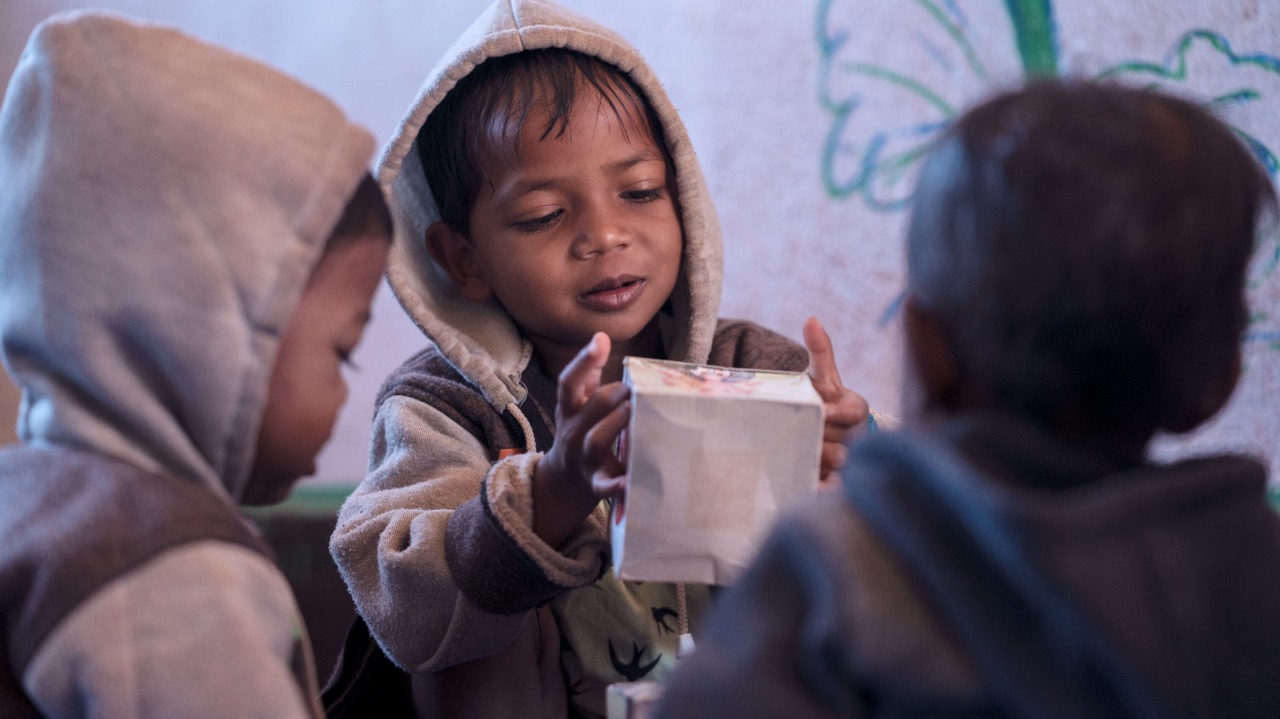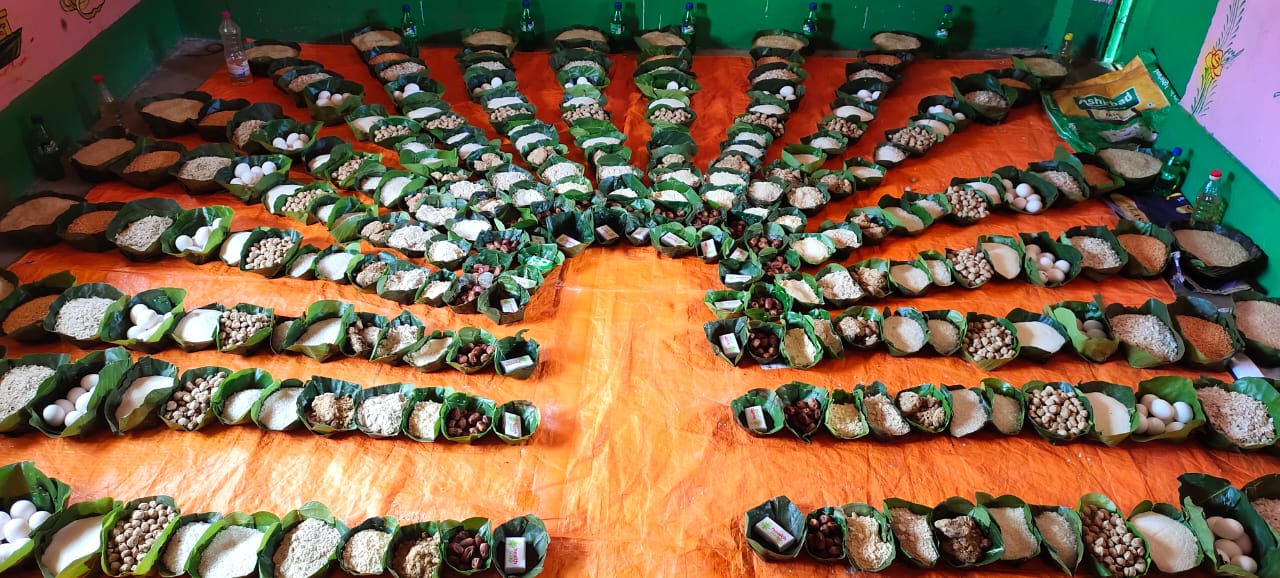Keonjhar: The early and middle childhood days are most important and critical in shaping the growth and development of an individual. Proper care with adequate and enhanced nutrition during this period will ensure that the children do not lack the needed nutrients. Working towards the aim of healthier childhood and a healthy future for all, the Keonjhar District administration has taken a slew of measures in addition to the various State and Central Government sponsored interventions. The Mamata Ghara initiative, introduction of millet laddus in ICDS program, DMF Poshak and improved Anganwadi Kendras are some of the programs taken up by the Keonjhar District administration that are ensuring the children nutrition and health.
Mamata Ghara – The Crèche: One of the most ambitious programs of the Keonjhar district, the Mamata Ghara caters to the children between six months to three years by taking care of them. When young children from poor families in the district are often left to the care of elder siblings, and parents have to leave for work in agriculture fields, forests and mines, these Mamata Gharas or the Crèches established under the District Mineral Fund provide nutritious complementary food, early childhood education and a safe environment to children between 6 months and 3 years in order to achieve age-appropriate milestones and prevent growth faltering. About 2500 children have benefited from the Mamata Ghara initiative so far. The crèche initiative has successfully reduced the percentage of wasted and severely wasted children by up to 58% and 86% respectively.

Due to covid situation, the kids are provided with Take Home Ration as per the menu chart which is being ensured by Anganwadi Didis. The Didis along with ensuring delivery of ration to the homes, are also conducting meetings with the parents and doing the regular routine check ups. The kids are also provided with eggs and dates to enhance nutrition.
Anganwadi Centres: Anganwadi Centres functioning under the ICDS programme are playing a crucial role in early childhood care and development in the district. They are providing pre-school education, supplementary nutrition, immunization and health services to children in the age group of 3-6 years. As the Anganwadis are closed due to Covid-19 pandemic, the administration has made efforts to provide dry ration at home to around 87000 kids from 3257 anganwadi centres in the beginning of the month. Across the district, the children are also provided with six eggs weekly which are being delivered by the Anganwadi Didis. During the visit to the houses of the kids, the Didis ensure proper delivery of the ration and also conduct meetings with their parents.

Introduction of Ragi Laddus (Millets) under ICDS: Ensuring adequate and balanced diet during early years is crucial for a child’s physical and mental development. Considering this, a novel programme had been launched to introduce Ragi laddus as an additional morning snack for all the children enrolled in Anganwadi Centres across the district. The initiative is providing two Ragi laddus per week to 87,000 pre-school children from the age of 3 to 6 years, enrolled in Anganwadi centres of Keonjhar district. As the Anganwadis are closed due to the pandemic, Ragi paste is being provided to the kids at home. The program has successfully completed one year, and it has helped enhancing nutrition among the kids.
DMF Poshak: Poor nutrition is potentially the biggest threat to a child’s growth and development. Stunted children have stunted bodies, stunted brains and stunted lives. Under the DMF Poshak initiative, more than 2.3 lakh children studying in 2870 government and aided schools across the district are being served eggs on all working days under the Mid-Day Meal programme. Due to Covid guidelines, the program is currently not functional but the beneficiaries are being handed over the benefits at the doorsteps.
The multipronged approach adopted by the Keonjhar administration has helped it to successfully minimise malnutrition and under-nutrition. The mostly tribal dominated district today stands as an example for others through its innovative interventions.


Comments are closed.